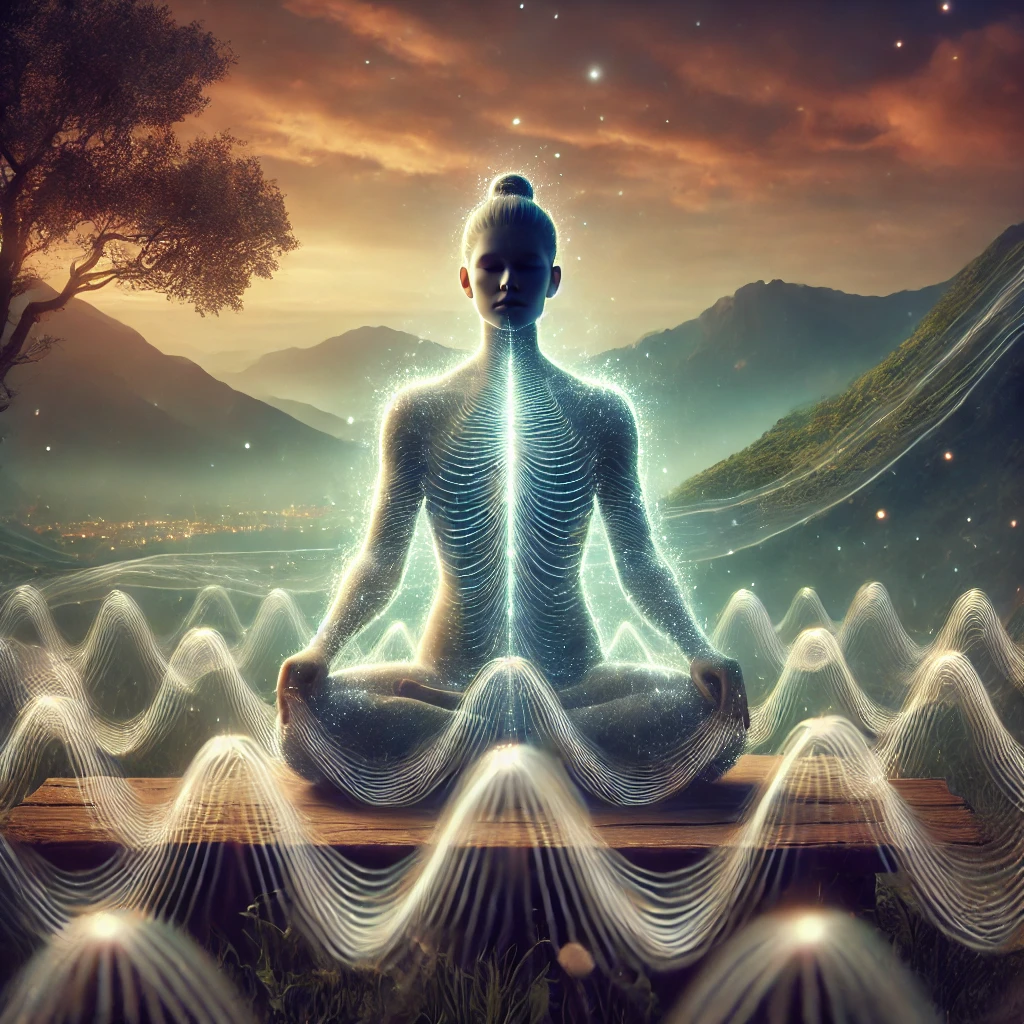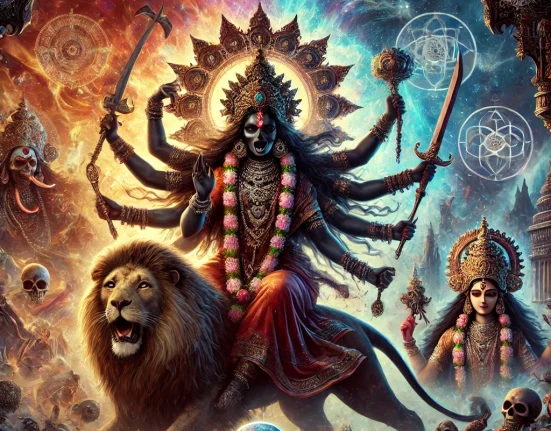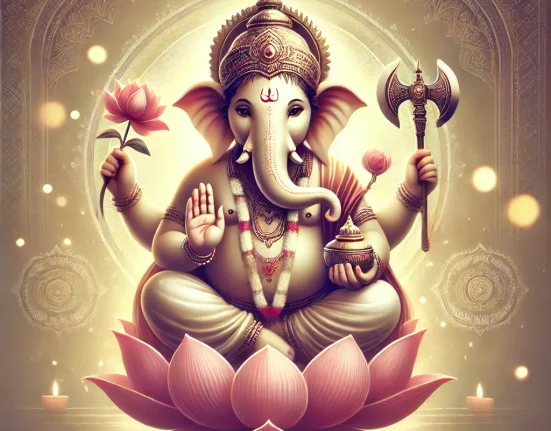The age-old question of whether mantra can change destiny has been a subject of deep contemplation in Hinduism, and it remains relevant today. For centuries, practitioners of spirituality have turned to the power of mantra to seek transformation in their lives. But does repeating sacred sounds or phrases truly have the power to alter one’s fate? Can it shape the trajectory of our future, or is destiny immovable? In this blog, we will explore the profound relationship between mantra, destiny, and spiritual practice, delving into the concepts of Tantra, Upasana, and the potent energy of Kali.
What is a Mantra?
A mantra is more than just a word or phrase repeated in meditation. It is a sacred sound or vibration believed to harness divine energies. In Hinduism, mantras are seen as tools that connect the practitioner to higher powers, the ultimate reality, or divine consciousness.
Rooted in Vedic traditions, mantras have long been used in spiritual practices like Tantra and Upasana (devotional practices). The sounds of the mantras are not random. Each mantra carries a specific vibrational frequency that can influence the energy around and within a person.
Take, for example, the well-known mantra “Om Namah Shivaya.” This chant is not just a reverence to Lord Shiva but also believed to awaken the practitioner’s inner divine essence. Similarly, mantras dedicated to Kali, the fierce goddess of transformation, are believed to hold immense power in destroying negativity and paving the way for rebirth.
Connection Between Mantra and Destiny
Before we delve into whether mantra can change destiny, let’s explore what destiny means. In Hindu philosophy, destiny is often thought of as a script already written based on the karma of one’s past lives. Karma, in turn, refers to the actions and deeds of individuals, with each action contributing to the blueprint of their future experiences.
So, where does mantra fit into this? Mantras are believed to be vibrations that can align an individual with divine energy, thereby influencing karma and reshaping destiny. By chanting mantras, many believe that one can shift their karmic patterns, alleviate suffering, and invite positivity and prosperity into their lives.
How Does Mantra Work?
A popular perspective suggests that mantras serve as a bridge between the mind, body, and spirit. They work on multiple levels:
- Mind: The repetition of a mantra quiets the mind, reducing distractions, anxiety, and negative thoughts. Over time, this leads to a change in mindset and perception.
- Energy: On a more subtle level, mantras influence the practitioner’s energy field. According to Tantra, sound vibrations can alter the flow of energy within the chakras, releasing blockages and restoring balance.
- Spirit: Finally, mantras have a spiritual aspect, deepening one’s connection to divine consciousness. This connection fosters an inner transformation, allowing one to transcend material limitations and potentially alter their life’s path.
The Role of Tantra in Shaping Destiny
To fully understand whether mantra can change destiny, it’s important to explore Tantra, a spiritual path that uses rituals, meditations, and mantras to awaken divine energy. In Tantra, mantras are viewed as potent tools that harness cosmic forces.
For instance, the mantra “Om Kali Ma” invokes the presence of Kali, the goddess of destruction and rebirth. When recited with devotion, this mantra is said to remove obstacles and karmic burdens, giving the practitioner the opportunity to rewrite their destiny. Kali’s energy is not gentle—it’s fierce, rapid, and transformative. For those willing to face the challenges she brings, Kali can guide one through radical inner change, ultimately altering their fate.
This intersection of mantra and Tantra shows that, in Hindu belief, destiny is not entirely fixed. By accessing higher spiritual powers through mantras, one can accelerate their spiritual evolution and navigate their karmic path more consciously.
Upasana and Devotional Practices
In addition to Tantra, Upasana, which translates to “worship” or “devotional practice,” plays a significant role in shaping destiny. Upasana involves repetitive mantra chanting, prayer, meditation, and offerings to deities. The goal is to cultivate a close, personal relationship with the divine.
Mantras used in Upasana invoke the blessings of specific deities. For example, chanting the Gayatri Mantra is believed to invoke wisdom and clarity, which can help guide individuals in making choices that steer them toward a more prosperous destiny. By consistently aligning oneself with the energies of the divine through mantra. Devotees believe they can influence their life’s outcomes and open doors to new possibilities.
Real-Life Examples of Mantra Changing Lives
There are countless stories of individuals who have experienced profound changes in their lives through mantra practice. These stories range from personal growth to life-altering events. One such example is of a woman who faced severe health issues and financial hardships. She turned to the Maha Mrityunjaya Mantra, known as the “death-conquering mantra,” dedicated to Lord Shiva. Over time, her health began to improve, and unexpected financial opportunities arose, leading her to believe that the mantra played a pivotal role in changing her destiny.
Similarly, devotees of Kali have shared stories of how chanting her mantra helped them overcome difficult circumstances, whether in personal relationships or career challenges. They describe the transformation as a form of “cosmic intervention,” where mantra chanting cleared obstacles they couldn’t have moved otherwise.
Is Destiny Immutable?
Despite these experiences, some argue that destiny is immutable. From this perspective, mantras cannot change what is already written in the stars. However, even among these skeptics, there is a belief that while mantras may not change one’s destiny, they can change how one perceives and responds to their fate. In this sense, mantras offer a shift in consciousness that allows individuals to face their challenges with greater resilience and equanimity.
The Science of Mantras and Their Impact
While the spiritual benefits of mantras are deeply rooted in Hinduism, modern research is beginning to explore how chanting affects the brain and body. Studies have shown that repetitive chanting can have a calming effect on the nervous system, reducing stress and promoting mental clarity. The vibration of mantras stimulates specific brain regions associated with mood regulation and emotional balance.
This scientific understanding offers a bridge between ancient wisdom and modern thought. By influencing the mind and body, mantra chanting may indirectly influence the decisions one makes. Which can then ripple out to create changes in their life.
Can Mantra Truly Change Destiny?
The question of whether mantras can change destiny does not have a single answer. For many, the practice of chanting mantras provides a pathway to transformation, helping them shift their mindset, energy, and spiritual alignment. Whether these changes directly alter destiny or simply the way one navigates life’s challenges is open to interpretation.
What remains clear, however, is that mantras hold immense power. They offer a gateway to higher consciousness and inner peace, allowing practitioners to live in harmony with the cosmic forces that shape their lives. In Hinduism, destiny is not a rigid, unchangeable force but rather a fluid concept that can be influenced by spiritual practices like mantra, Tantra, and Upasana.
So, can mantra change destiny? Perhaps the answer lies within the mantra itself. Through dedication, intention, and connection to divine energy, the potential for change is always present.
Key Takeaways:
- Mantras are sacred sounds that align the practitioner with divine energy.
- Tantra uses mantras as powerful tools to influence spiritual growth and, potentially, one’s destiny.
- Upasana practices of devotion help to cultivate relationships with deities, aiding in the transformation of life’s challenges.
- While some argue destiny is fixed. Many believe that mantra offers a way to navigate and potentially alter the karmic path.
Whatever the case, the power of mantra is undeniable, offering a powerful tool for those seeking to transform their lives.





Leave feedback about this